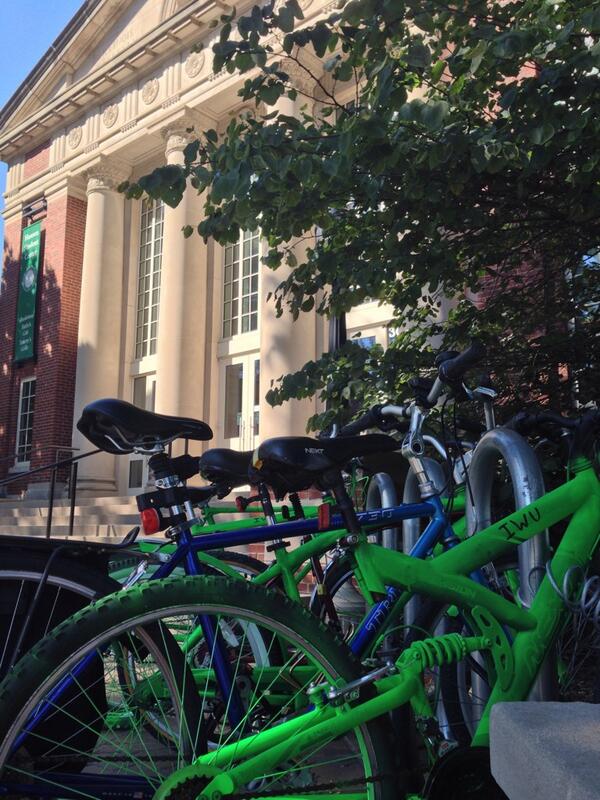This summer, IWU has changed recycling contractors and can now offer single stream recycling on campus. You no longer need to separate paper and containers, but rather you can place all recyclable materials into one bin.
In the public areas, you can place plastic, glass, aluminum, and paper into the bins marked “Single Stream.”
Acceptable containers include:
- Plastics #1, 2, 3, 4, 5, and 7, including containers for milk, water, soda, detergent, shampoo, salad dressings, medicine bottles, etc. (lids included)
- Plastic 6-pack and 12-pack ring carriers (must be cut up)
- Grocery containers #4 and #5 (plastic resin) such as margarine tubs, yogurt cups, and frozen dessert cups
- Glass bottles and jars: clear, brown, blue, or green (metal lids included)
- Aluminum: cans, clean disposable trays, pans, and foil
- Steel cans, including empty aerosol cans
- Juice boxes (no straws)
- Gable-top milk and OJ cartons
Acceptable paper items include:
- Newspapers, including all advertising inserts
- Paperboard, such as cereal boxes, frozen food boxes, and tissue boxes
- Cardboard
- Computer paper, loose leaf paper, and gift wrap
- Soft-cover books and hard-cover books
- Junk mail and envelopes (including those with windows)
- Paper egg cartons
- Telephone books
- Magazines
In your office, you can still use the paper boxes previously used “for paper only” for all recyclable materials. If you would like a new recycling container for your office, please contact Dale Conover in Physical Plant (dconover@iwu.edu) and he will arrange for a new container to be delivered.
If you have any questions or comments about the program, please feel free to contact Carl Teichman (cteich@iwu.edu)
 Michael Gorman@michaelcgorman
Michael Gorman@michaelcgorman